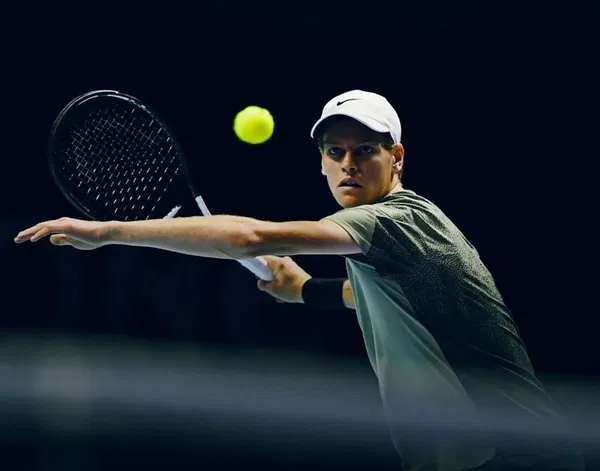
Jannik Sinner and Carlos Alcaraz have become one of men’s tennis’ most compelling rivalries, with the world No. 2 Sinner chasing off‑and‑on his peer No. 1 Alcaraz for the top spot in the sport.
Here are the relevant pieces that set the stage for the recent story:
Sinner had conceded several key matches to Alcaraz this season, including in Grand Slams and other major tournaments, which had underscored Alcaraz’s psychological and tactical edge.
The event in question is the Six Kings Slam — an exhibition tournament held in Saudi Arabia (Riyadh) featuring top players invited for large prize money, but not part of the official ATP Tour ranking‑calendar.
At that event, Sinner defeated Alcaraz in the final 6–2, 6–4, earning a reported US$6 million (US$4.5 m for the win plus ~US$1.5 m appearance fee) — a massive payday.
What was said: “Worthless” comment
After Sinner’s big win in that exhibition, Italian former pro & Grand Slam winner Adriano Panatta made a pointed commentary:
> “These exhibitions have limited value, both technically and emotionally … I repeat, these matches are worthless.”
In short, while Panatta acknowledged Sinner played very well in that match (“excellent match … served and played very well, much better than the Spaniard”), he cautioned against reading too much into it or treating it as equivalent to a “real” tour‑match.
Why the comment matters
Here are the reasons this commentary matters in the broader context:
Exhibition vs Tour match: The Six Kings Slam is not part of the official ATP point‑earning circuit. That means, even though the win carried prestige and prize money, it doesn’t count towards rankings or count in the official head‑to‑head (at least not in the same way). Panatta’s point is that the conditions, stakes and context differ from “real” tour finals.
Psychological vs competitive weight: For Sinner, beating Alcaraz in any setting is a confidence boost. But for Panatta (and others), the win’s psychological value is dampened because the setting is different: exhibition, possibly less pressure, maybe less rigorous preparation from one or both players.
Implications for year‑end goals: Sinner still has major official goals — in particular, finishing as Year‑End No. 1, and doing well in official big tournaments like the year‑end ATP Finals, the Paris Masters, etc. The exhibition win doesn’t directly help with those goals. For example, Sinner himself admitted that finishing year‑end No. 1 this year is “impossible” under the current standings, despite the big money victory.
Rivalry context remains strong: Despite the exhibition loss, Alcaraz still holds a dominant head‑to‑head lead over Sinner in “official” tour‑level events (10‑5 or similar) — making the exhibition result more “interesting” than definitive.

What this means going into the ATP Finals
With the year winding down and the ATP Finals approaching (especially relevant since this year it’s in Turin, Italy – Sinner’s “home” environment), here are the implications:
Sinner will look to leverage the confidence from his dominant performance. He said he was pleased with serving and returning well in that exhibition.
But the “real tests” remain: playing Alcaraz in ranking‑points tournaments, where pressure, fatigue, tour ranking points and every point matter — and where Panatta says we’ll see how much Sinner’s progress actually counts.
Alcaraz, meanwhile, will likely treat the exhibition loss as a blip and remain focused on official targets. He has less to gain (in ranking) from exhibition events and presumably will want to assert control in tour events.
For the year‑end No. 1 race: Sinner’s path is steep. He needs to win some or all of his remaining tournaments (Vienna, Paris, ATP Finals) and also hope Alcaraz stumbles. The exhibition win doesn’t reduce that burden.
Summary
Sinner beat Alcaraz 6–2, 6–4 in the final of the Six Kings Slam (exhibition) and earned US$6 million for it.
Panatta called that victory “worthless” (in the sense of competitive value) because the event was an exhibition with limited technical/competitive weight.
The win is valuable for Sinner (confidence, momentum, statement) but must be contextualised: it does not change official rankings, nor necessarily the dynamic of the rivalry in official ATP events.
The real test for Sinner is how he performs against Alcaraz in official tournaments, especially the upcoming ATP Finals — where ranking, pressure, and stakes are much higher.